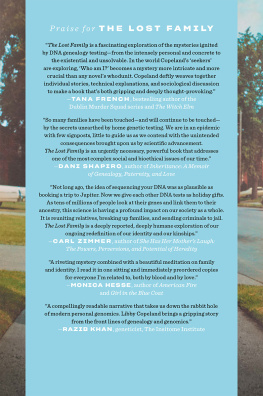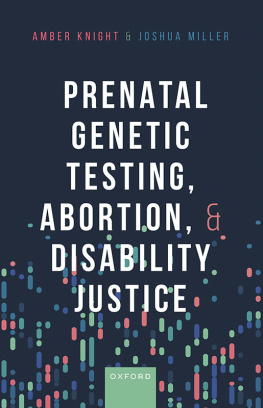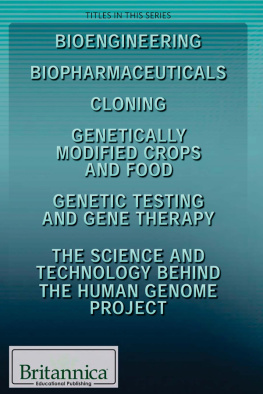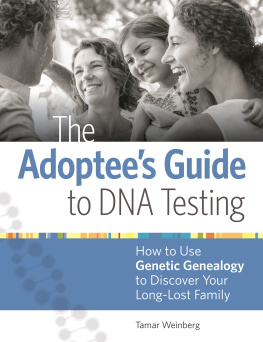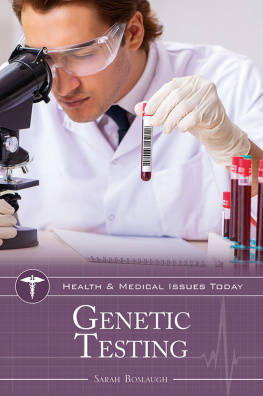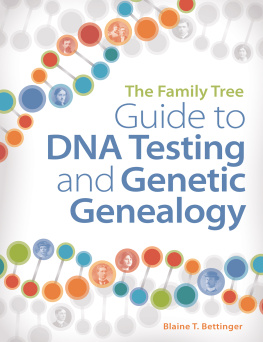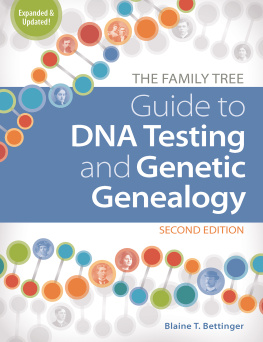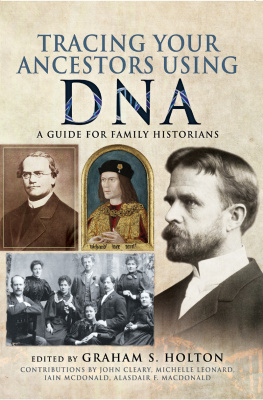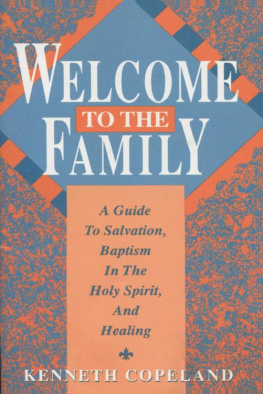ACKNOWLEDGMENTS
I am deeply grateful to Alice Collins Plebuch, her sister, Gerardine Collins Wiggins, and their brothers Jim, John, Bill, Brian, and Ed for allowing me into their lives and helping me understand their emotional trajectories, as well as the experiences of their father, Jim Collins. Alices incredible mind and perseverance made it possible for her to solve the mystery of her father; her record-keeping and meticulous memorynot to mention her time and patiencemade it possible for me to recount her efforts. Gerry offered important context and emotional perspective, and had records and recollections that deepened my understanding of the family and its search. I am also deeply grateful to Pam Benson for her time and thoughtful insights into her own journey and the life of her father, Phillip Benson.
I want to thank the seekers, many of whom spent hours telling me their stories of heartbreak, wonder, and love. It is a leap of faith to tell a stranger your shock, your shame, your anger, and your fears, a leap of faith to let a stranger into your most intimate musings. I found myself grateful for their trust and determined to tell these stories with as much sensitivity and emotional nuance as possible, in hopes of doing justice to a phenomenon that is increasingly a part of our American story. One of the seekers I interviewed said she hoped that accounts like hers will make genetic surprises, and the secrets they reveal, not so taboo. Thats my hope, too.
This book began when my editor at the Washington Post, the wonderful Amy Argetsinger, came to me with the idea of writing a feature story about DNA revelations. She and others at the Post gave the story the space, design, and platform to catch the attention of readersa lot of readers. As hundreds of emails poured into my inbox with captivating stories that made me gasp, smile, and cry, I knew I wanted to write a book that would attempt to capture the scope of how this technology is changing how we relate to one another. The Lost Familys other fairy godmother is the wise and thoughtful genealogist Jennifer Mendelsohn, who first suggested to Amy that she commission a story on this important topic. Jennifers guidance about and enthusiasm for the world of genetic genealogy have been invaluable to me throughout the process of writing this book, as was her reading of my manuscript early on. I am grateful for her foresight, patience, and feedback.
A number of experts have generously given their time to help make this book as accurate and compassionate as possible. Genetic genealogist CeCe Moore first told me Alices remarkable story in early 2017. Over many subsequent conversations, CeCe shared countless insights, much technical knowledge about her field and her work as a search angel, and a big-picture, sociologists-eye-view of the changing state of the American family. I am exceedingly grateful to geneticist Ricki Lewis for reading through the manuscript to make sure the science was correct, comprehensive, and comprehensible. Her book The Forever Fix: Gene Therapy and the Boy Who Saved It is a model of compelling science journalism. Genetic counselor Brianne Kirkpatrick counseled me on the science and ethics of her field, fielded countless questions from me about everything from BRCA1 mutations to high runs of homozygosity, and spot-read certain science-heavy paragraphs. Genetic genealogist Laurie Pratt McBriarty-Sisk acted as a sounding board and sensitivity counselor, helping me understand experiences like hers from the inside out, and spent an inordinate amount of time making sure I understood the techniques involved in an unknown parent search. Genetic genealogist Debbie Kennett has always found time to answer my questions about her field and the home DNA testing industry, and shes a font of knowledge about ethics, privacy, and international issues.
I also want to thank Kathryn Garber, Emory University professor of human genetics, who read and critiqued several DNA explainer paragraphs that appear early in the book, as well as the American Society of Human Genetics for facilitating this assistance. I am indebted to Johns Hopkins science historian Nathaniel Comfort, whose guidance about the early history of genetics (recounted in chapter two) was invaluable, as were his recommendations about the best historians and sources to consult. Im grateful to University of Leeds historian of science Gregory Radick, who coached me through the nuances of technical language and aided in my understanding as I worked on this same section. Many more people contributed to The Lost Family; in cases in which Ive quoted someone at length, you can usually assume that meant one or more long initial interviews, numerous follow-up emails, and another epic fact-checking phone call at the tail end. I also want to mention those who dont appear in the book much, if at all, yet lent a special expertise or were especially supportive of the book and its mission. These include Megan Allyse, Alexander Beider, Benjamin Berkman, Shai Carmi, Ellen Wright Clayton, Ken Cobb, Michael Coble, Robert Cook-Deegan, Graham Coop, Michael Doc Edge, Colleen Fitzpatrick, Dov Fox, Tana French, Ariella Gladstein, Evelyn Gonzalez, Jason Harrison, James Hazel, Erika Hutchcraft, Razib Khan, Maarten Larmuseau, Thomas Murray, Sandra Opdycke, Itsik Peer, Andelka Phillips, Julia Robbins, Judy Russell, Alicia Semaka, Dani Shapiro, Alexandra Minna Stern, and Carl Zimmer.
My agent, Jess Regel of Foundry Literary + Media, believed in this book when it was just an idea and has offered me savvy counsel and support at every step. I have been thrilled and honored to have as my editor Jamison Stoltz, whose unerring sense for narrative and pacing helped me see how I needed to shape the manuscript. Like The Lost Familys protagonist, Alice, Jamison can see the big picture at the same time as he can tell you where the nits are. I am grateful to the whole team at Abrams Press for their support and guidance, including Lisa Silverman, Gabby Fisher, Kimberly Lew, and Sarah Robbins.
Many friends have been with me through this marathon, cheering me toward the finish. In particular, I want to thank Ilene Wong, also known as the young adult author I. W. Gregorio, who since becoming my friend in college has encouraged my ambitions and pushed me to take up more space. Ilenes why-not? attitude is infectious. Karen Pasternack knows me so well that at times Im certain we share a brain. She has comforted and counseled me countless times during the course of this book, making me feel braver, calmer, and wiser. And Nina Morgenlanders faith, love, and optimism have always made me feel like I can do anything. Many other friends, family members, colleagues and wise people offered encouragement and advice, including Angela Giuffra, Monica Hesse, Mark Kuniholm, Katherine Reynolds Lewis, Henry Miller, Suz Redfearn, Gina Scharoun, Lyn Traverse, Neely Tucker, and Gustavo Stolovitzky.
Writing this book has caused me to think a great deal about inheritance, genetic and otherwise. I am deeply grateful to my mother, Sarita Eisenstark, whose curiosity, encyclopedic knowledge and intellectual rigor made me a journalist before I was one. And I want to thank my father, Charles Copeland, whose emotional honesty, generosity and optimism have helped shape my compassion and moral compass, invaluable skills for a writer.
To my children, Olive and Lev, thank you both for your wisdom, sensitivity, and love. As a family we worked together to make this book real. And to my husband, Dan, thank you for believing in me before I did; thank you for your calm and certitude and soulfulness; thank you for always making time for this project, even as your own load grew heavier. I wouldnt want to attempt to write a book (or do anything else, for that matter) without you.


